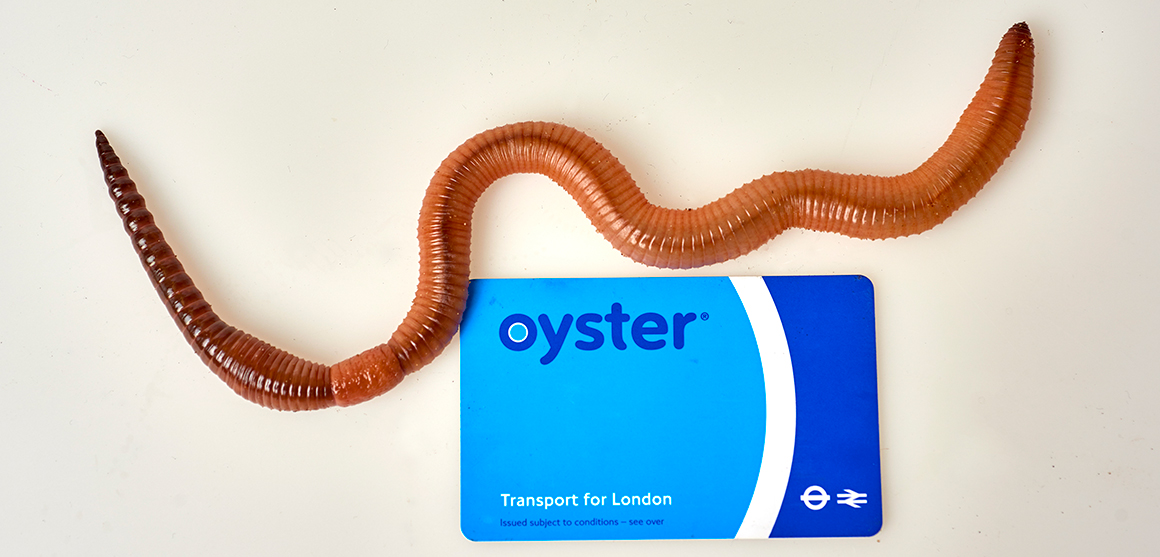The biggest earthworm ever recorded in the UK has been found in a vegetable plot in Cheshire, report Museum scientists.

Paul Rees from Widnes spotted the 40-centimetre-long worm in his vegetable patch. His stepson George named it Dave.
They sent it in to Museum experts who identified it as a lob worm, Lumbricus terrestris.
Emma Sherlock, Senior Curator of Free-living Worms at the Museum and Chair of the Earthworm Society of Britain, says of the find:
'I was bowled over by the size of this worm when I opened the plastic box they sent it in. Not only is it really long, it is almost twice as heavy as any other wild earthworm ever seen, weighing the same as a small chocolate bar.'
A weighty worm
The worm weighs 26 grammes, trouncing the previous record-holders found in Scotland last year, which weighed less than 15 grammes.
The record-breaking worm will become part of the scientific collection of 80 million specimens at the Museum.
Emma Sherlock adds, 'This may seem sad, but by being part of the scientific collection this earthworm will have a legacy that lasts beyond all of our lifetimes, helping scientists today and tomorrow to understand and protect this species and its environment.'
The Museum routinely monitors earthworms and normal practice is to identify and release them. Only very few are kept as a record of the population, such as if they are found in a new place or are particularly unusual such as this one.
Could you find a bigger worm?
Earthworms have lots of predators and normally in the wild they don't survive long enough to reach Dave's size.
Emma comments, 'With worms this size Paul must have an incredibly fertile and well-drained veg plot with decaying matter quickly recycled back into the soil. Earthworms are incredibly important to keep soils healthy.'
'I look forward to seeing if anyone can find an even bigger example by taking part in the Earthworm Watch survey this autumn.'
Earthworm Watch is a survey of earthworms and soil quality run by the Museum and the Earthwatch Institute in association with the Earthworm Society of Britain.
Earthworms improve soil fertility and ability to store carbon by mixing in dead plant material, and their burrows increase the amount of air and water that can enter.
Citizen scientists around the UK are taking part in Earthworm Watch to help researchers investigate how human activities such as planting schemes, moving topsoil and adding fertilisers affect the ability of earthworms to create healthy soils.
Find out more about Earthworm Watch and how to take part on our project page.
If you’re interested in learning more about earthworms, the Earthworm Society of Britain runs courses and events around the country.
Related information
- Get involved and discover results so far on the Earthworm Watch website
- Find upcoming earthworm events on the Earthworm Society of Britain website
- Develop your natural history skills and interests with the help of the Museum's Centre for UK Biodiversity

British wildlife
Find out about the plants and animals that make the UK home.




Don't miss a thing
Receive email updates about our news, science, exhibitions, events, products, services and fundraising activities. We may occasionally include third-party content from our corporate partners and other museums. We will not share your personal details with these third parties. You must be over the age of 13. Privacy notice.
Follow us on social media